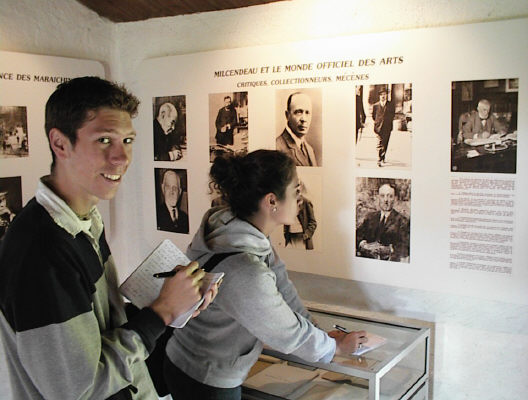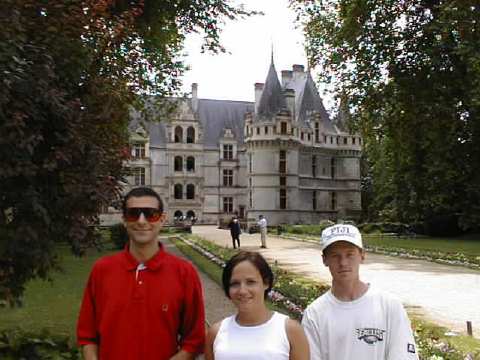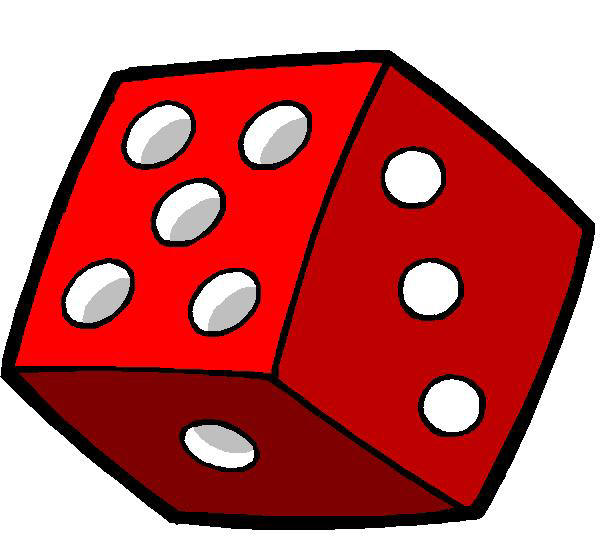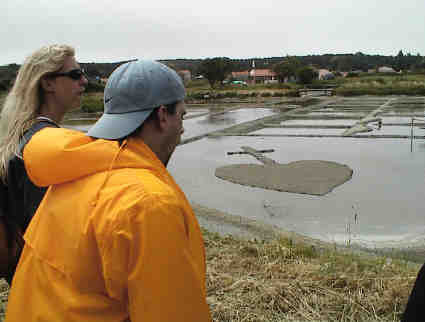

 French
470: Culture en direct
French
470: Culture en direct
Note: The work and activities for Fr
470 are
closely integrated with those of FR 471 (Communication en direct), also taught in France.
The calendar that accompanies the syllabus covers class sessions and activities for both
classes.
Course objectives: This class offers numerous activities conceived to
improve your knowledge about and deepen your comprehension of French culture through an
in-depth exploration of a large city (Paris), a small town (Les Sables d’Olonne), and
a region (La Vendée). Building on the level of general knowledge already acquired,
students will explore several elements of French identity through direct contacts with the
society. The WVU-V program will allow you the opportunity to pursue this exploration at
several levels, ranging from the national (or even transnational) level down to the level
of the individual. This exploration will also include an equally strong diachronic
element, ranging from the pre-historic past to the most recent elements of contemporary
life. Overall students will work in an intesive immersion environment toward mastery of the "Five C's" identified in the national standards of the American Council on the Teaching of Foreign Langauges:
knowledge about and deepen your comprehension of French culture through an
in-depth exploration of a large city (Paris), a small town (Les Sables d’Olonne), and
a region (La Vendée). Building on the level of general knowledge already acquired,
students will explore several elements of French identity through direct contacts with the
society. The WVU-V program will allow you the opportunity to pursue this exploration at
several levels, ranging from the national (or even transnational) level down to the level
of the individual. This exploration will also include an equally strong diachronic
element, ranging from the pre-historic past to the most recent elements of contemporary
life. Overall students will work in an intesive immersion environment toward mastery of the "Five C's" identified in the national standards of the American Council on the Teaching of Foreign Langauges:
Learning outcomes: Successful students in this course will be able to

Participation: Participation in group activities and realization
team podcasts are essential to the successful completion of the course. 
During
visits and excursions, all students will attentively follow guides’ presentations and
will make note of elements essential to the comprehension of the
cultural element being explored (the traditional WVU-V "quinconce" will be one
medium for this, the field notebook or podcast, another). These points will serve as the basis for classroom
discussions that will follow and will also provide subject matter for journals and
individual projects. Students will be expected to ask questions of the presenters and to
participate actively in all proposed activities. The frequency and pertinence of
contributions during the visits and the class sessions as well as performance on
quizzes based on the visits will be the principal criteria for
the evaluation of participation. Attention to content will
be measured by frequent in-class quizzes and by mini-assignments in the field.
NOTE: All communication during class and excursions
(including meals) is to be done in the target
language. Cultural notes and journal entries must also reflect this
integration of language and cultural objectives.
Participation will be evaluated on the basis of: accuracy of responses to
quizzes based on course content, engagement in classroom and field activities,
analytical or interpretive pertinence of questions/notes/discussions.
Journal: An individual cultural journal will be required, and its contents
may be recorded in conjunction with those required for FR 471. The cultural journal will
include one or more entries focused on French culture for every day of the program
(week-ends are optional). It will also include a general conclusion written during the
last days of the program. Entries will consist of general and/or specific observations
regarding the direct experiences in the community, in the home, or from our field work and
excursion as well as reflexions on their significance in the
cultural context.
The observations should demonstrate an advanced level of cultural comprehension
and analysis in a specific context of actual experience. Among possible contexts we would
suggest the following: national identity, local or regional identity, national or regional
news, daily life, etc. As much as possible, the analyses should take a synthetic approach,
showing the relationship between these various cultural elements. This synthetic character
will be an essential element of the general concluding comments that will close the
journal. A significant portion of each regular three-hour class session will be
devoted to discussion and analysis of the cultural experiences provided by WVU-V.
Students will be
expected to maintain the journal outside of class and on a daily basis
(it is not to be done once a week or cram-composed at the end of the program). The journal will be evaluated according to the following criteria:
completeness, cultural content, precision, depth of synthesis/analysis, and pertinence.
comprehension
and analysis in a specific context of actual experience. Among possible contexts we would
suggest the following: national identity, local or regional identity, national or regional
news, daily life, etc. As much as possible, the analyses should take a synthetic approach,
showing the relationship between these various cultural elements. This synthetic character
will be an essential element of the general concluding comments that will close the
journal. A significant portion of each regular three-hour class session will be
devoted to discussion and analysis of the cultural experiences provided by WVU-V.
Students will be
expected to maintain the journal outside of class and on a daily basis
(it is not to be done once a week or cram-composed at the end of the program). The journal will be evaluated according to the following criteria:
completeness, cultural content, precision, depth of synthesis/analysis, and pertinence.
Field
and Community Podcasts: Each student will be assigned to a
development team that will work together on a weekly
podcast project based on excursions in the field and life in the community of
Les Sables d'Olonne. Each team will have primary responsibility for one
podcast per and that podcast is to be designed for use in the distance learning
course. Each team will produce FIVE podcasts over the course of the
program, based either on field trips and excursions, or on life on the
community of Les Sables d'Olonne. The podcast, in the form of a QuickTime Movie
file integrating text, still photography, audio, and video, will generally
included the following elements:
1) Preparatory notes: a) vocabulary, b) expressions c) background information, published with as a pdf file,
2) Exposition: the primary content of the podcast -- credits, images, videos, sound interviews, appropriate subtitles, etc.
3) Follow-up to questions/reactions/journals from students in Virtual Vendée
The projects will be evaluated on the basis of their relevance and
accuracy in terms of the Five C's, the quality of synthesis/analysis, as well as development, organization,
the level of interactivity with "Virtual Vendée" as well as the overall quality of the final product. Team assignments will rotate, with each student taking the responsabilies of photographer, interviewer, and producer for at least one podcast. Individidial students will be evaluated both on the quality of the podcast.
| Evaluation: Journal 30% Participation (class & field) 30% Podcast Project 40% |
Grade Scale: 90-100% A (excellent in ALL areas of criteria for evaluation) 80-89% B (very good: excellent in some areas but not all, or very good in all) 70-79% C (satisfactory: good in some areas but not all, or satisfactory in all) 60-69% D (poor: satisfactory in some areas but not all, or poor in all) 59-0% F (failing: unsatisfactory in significant areas of evaluation) |